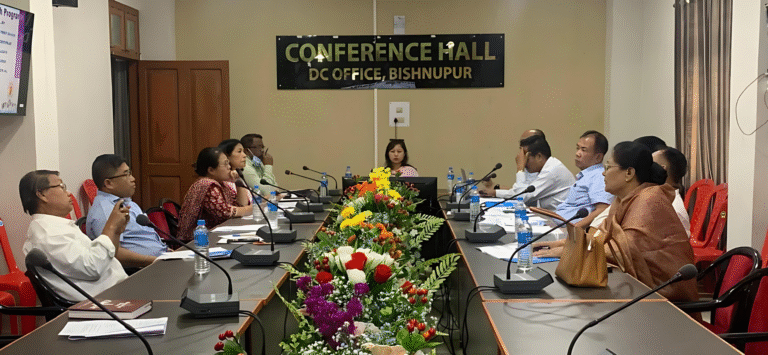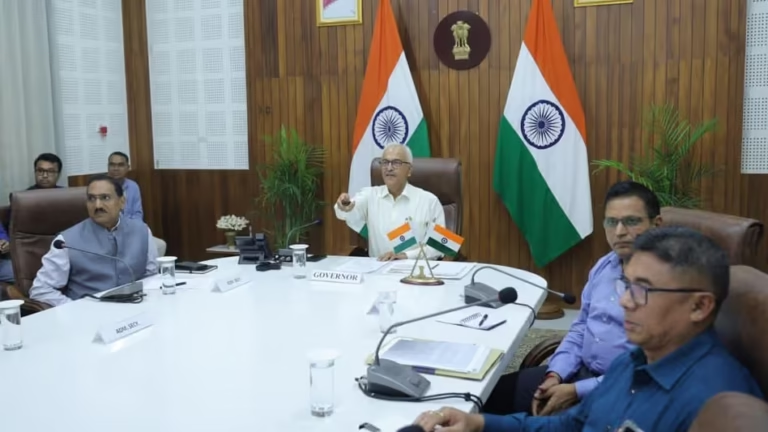Manipur’s Stance on Government Doctors’ Private Practice: Public Health Over Personal Gain
In recent years, the demand for government accountability and transparency in healthcare has grown. At the forefront of these efforts is Manipur Health Minister Dr. Sapam Ranjan’s push to ensure that government-employed doctors prioritize their public sector duties over private practice. This directive comes amidst growing concerns over the quality and accessibility of healthcare services in Manipur, and it underlines a critical question: should government doctors be allowed to work privately, and at what cost to public health?
Why Is Private Practice by Government Doctors a Concern?
Imagine going to a public hospital, only to find out that the doctor you need is at a private clinic. It’s frustrating, right? This exact scenario is unfolding in parts of Manipur, where some government doctors have reportedly chosen private practice over public service. While private practice may bring additional income, it often diverts critical resources—time and expertise—away from the government facilities where they are sorely needed.
Dr. Ranjan’s recent warning highlights this issue. He emphasized that government doctors have a duty to serve the people through government institutions, especially given the pressing health challenges facing the state. But this isn’t just a Manipur issue; it’s a debate that’s happening across India, where limited public health resources and personnel are stretched thin.
The Impact on Public Healthcare in Manipur
For a state like Manipur, where access to healthcare can be challenging, the diversion of doctors to private practice only deepens the crisis. Here’s why this shift matters so much:
- Strained Resources: Manipur’s healthcare system, like many in India, is already under strain. When government doctors split their time between public duties and private clinics, government facilities lose out on valuable expertise.
- Reduced Availability: In public hospitals, patients often face long waits. If government-employed doctors are working fewer hours in these facilities, it only extends these delays and can diminish the quality of care patients receive.
- Perception of Public vs. Private Care: The more government doctors lean toward private practice, the more the public perceives private facilities as superior—an imbalance that can hurt public trust in government services.
Legal and Ethical Standards in Healthcare
Dr. Ranjan’s announcement comes as part of a larger push to establish ethical and legal standards in Manipur’s healthcare sector. Public healthcare is a duty, one that requires a commitment to professionalism and integrity. By warning doctors against private practice, Dr. Ranjan is not just enforcing regulations but also reinforcing the ethical standards that come with public service. After all, when doctors join the public sector, they are committing to serve the larger community.
Many health experts agree: a focus on legal standards is necessary to curb conflicts of interest, particularly in a sector as critical as healthcare. Legal action against doctors who violate this policy could set a precedent, reminding healthcare workers of their responsibilities to the public.
Balancing Government Duties and Private Practice: A Nationwide Debate
This issue isn’t limited to Manipur; it’s a topic of debate across India. Many argue that allowing government doctors to work in private practice can actually increase healthcare access, especially in underserved regions. However, others counter that it leads to a drain on public resources. The question boils down to priorities: should a doctor’s right to work privately outweigh their duty to serve the public?
The government’s stance is clear. With Dr. Ranjan’s warning, Manipur is pushing back against this trend, prioritizing public health over individual financial gain. As healthcare needs grow, this approach may serve as a blueprint for other states grappling with similar challenges.
Moving Forward: Strengthening Public Healthcare
The takeaway here is simple: government doctors have a duty to serve the public first. As Dr. Ranjan emphasized, government facilities rely on these professionals to ensure that everyone, regardless of their income level, has access to quality healthcare. Here are some ways Manipur might strengthen its public healthcare system moving forward:
- Increased Monitoring and Accountability: Regular checks and transparent reporting can help ensure that doctors remain committed to their public sector roles.
- Better Compensation and Incentives: If financial strain is pushing doctors toward private practice, the government could consider revising compensation packages or providing additional incentives for dedicated public service.
- Investment in Public Healthcare Infrastructure: By improving the infrastructure in government facilities, the state can make the public sector a more attractive option for doctors and patients alike.
- Community Awareness: Informing the public about the importance of public healthcare can strengthen demand for government facilities, ensuring they receive the support and resources needed to thrive.
FAQs
- Why is Manipur’s Health Minister restricting private practice for government doctors?
The restriction is intended to ensure that government doctors focus on serving the public through government facilities, enhancing healthcare accessibility and quality. - What is the impact of private practice on public healthcare?
When government doctors engage in private practice, it diverts time and resources away from public hospitals, leading to longer wait times and reduced service quality. - Will legal action be taken against doctors who practice privately?
Yes, according to Health Minister Dr. Ranjan, doctors who continue private practice against regulations will face legal consequences. - Are there similar restrictions in other Indian states?
Yes, several Indian states have policies restricting or closely monitoring private practice by government doctors to prevent resource diversion from public facilities. - What can be done to improve public healthcare services in Manipur?
Measures include enhancing monitoring, improving compensation, investing in infrastructure, and raising public awareness about the value of public healthcare services.




